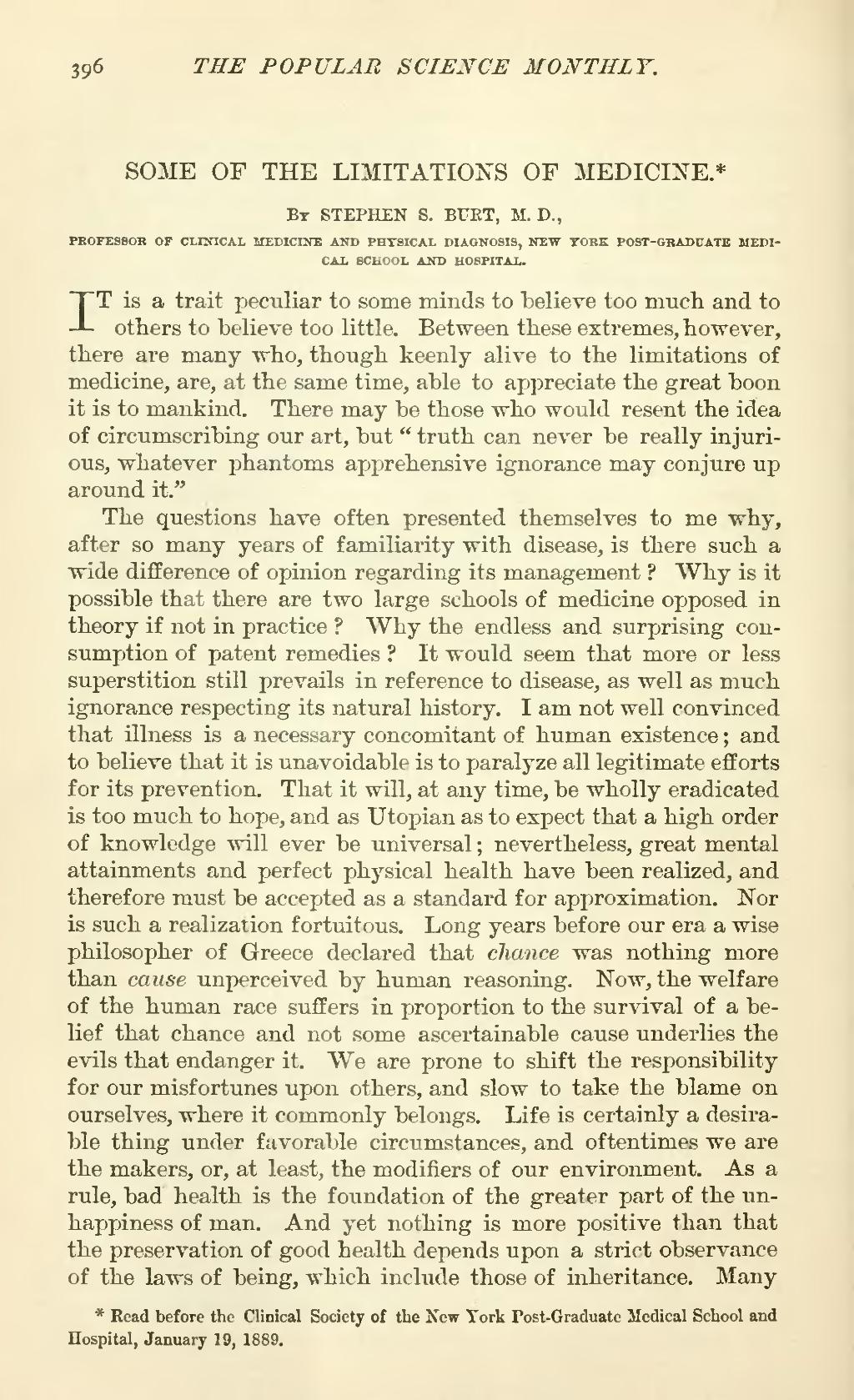| SOME OF THE LIMITATIONS OF MEDICINE.[1] |
By STEPHEN S. BURT, M. D.,
PROFESSOR OF CLINICAL MEDICINE AND PHYSICAL DIAGNOSIS, NEW YORK POST-GRADUATE MEDICAL SCHOOL AND HOSPITAL.
IT is a trait peculiar to some minds to believe too much and to others to believe too little. Between these extremes, however, there are many who, though keenly alive to the limitations of medicine, are, at the same time, able to appreciate the great boon it is to mankind. There may be those who would resent the idea of circumscribing our art, but "truth can never be really injurious, whatever phantoms apprehensive ignorance may conjure up around it."
The questions have often presented themselves to me why, after so many years of familiarity with disease, is there such a wide difference of opinion regarding its management? Why is it possible that there are two large schools of medicine opposed in theory if not in practice? Why the endless and surprising consumption of patent remedies? It would seem that more or less superstition still prevails in reference to disease, as well as much ignorance respecting its natural history. I am not well convinced that illness is a necessary concomitant of human existence; and to believe that it is unavoidable is to paralyze all legitimate efforts for its prevention. That it will, at any time, be wholly eradicated is too much to hope, and as Utopian as to expect that a high order of knowledge will ever be universal; nevertheless, great mental attainments and perfect physical health have been realized, and therefore must be accepted as a standard for approximation. Nor is such a realization fortuitous. Long years before our era a wise philosopher of Greece declared that chance was nothing more than cause unperceived by human reasoning. Now, the welfare of the human race suffers in proportion to the survival of a belief that chance and not some ascertainable cause underlies the evils that endanger it. We are prone to shift the responsibility for our misfortunes upon others, and slow to take the blame on ourselves, where it commonly belongs. Life is certainly a desirable thing under favorable circumstances, and oftentimes we are the makers, or, at least, the modifiers of our environment. As a rule, bad health is the foundation of the greater part of the unhappiness of man. And yet nothing is more positive than that the preservation of good health depends upon a strict observance of the laws of being, which include those of inheritance. Many
- ↑ Read before the Clinical Society of the New York Post-Graduate Medical School and Hospital, January 19, 1889.

